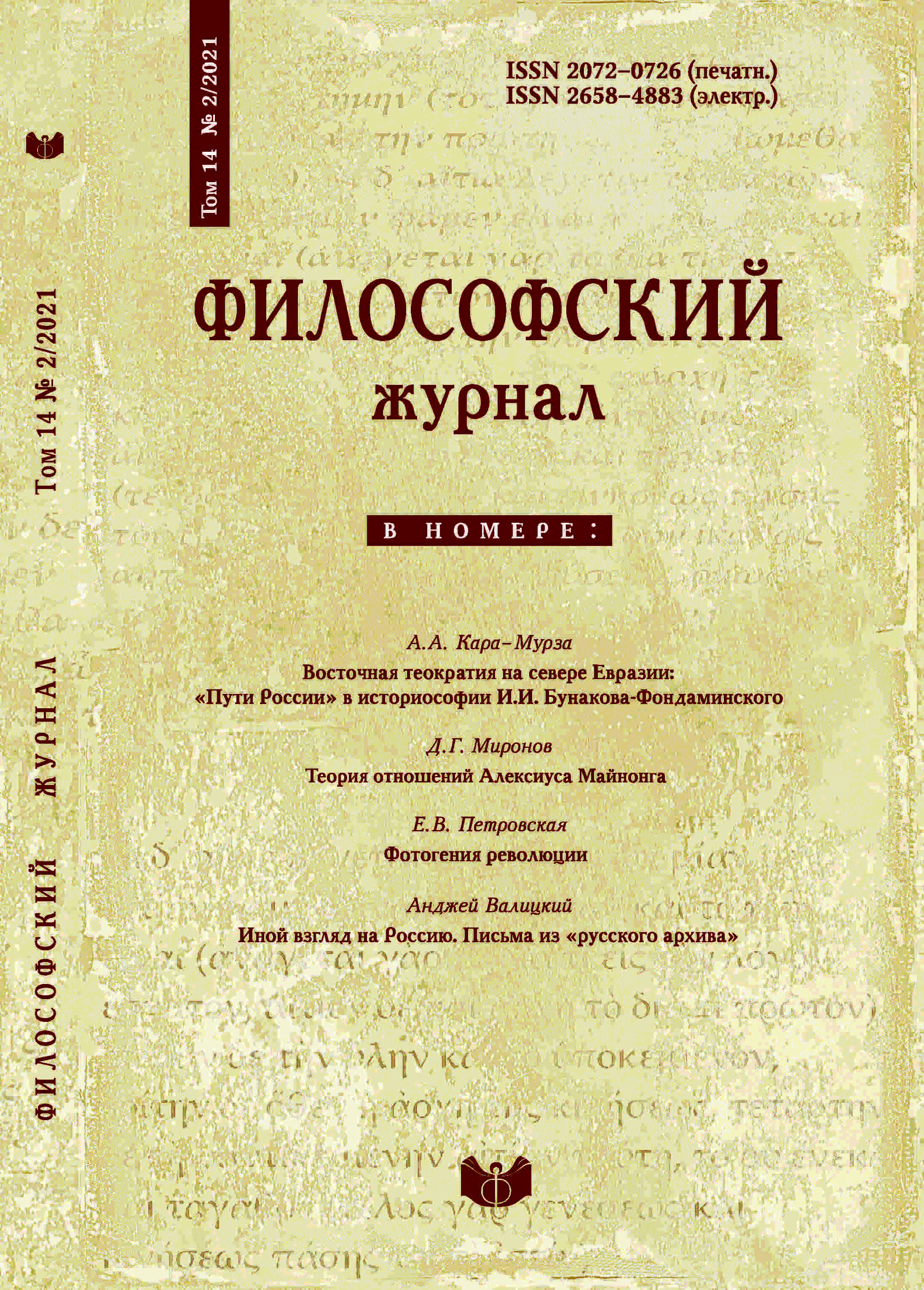To the question of evidence in Husserl’s phenomenology: the givenness and the horizon
DOI:
https://doi.org/10.21146/2072-0726-2021-14-2-66-81Keywords:
evidence, phenomenology, givenness, horizon, meaningAbstract
The article deals with the initial context of introduction and subsequent transformation of the concept of evidence in Husserlian phenomenology. It shows that the initial context is composed of the basic differences drawn in the theory of meaning of Logical Investigations. These differences include the difference between experience, meaning and object as well as the correlative differences between meaning-intention and meaning-fulfillment, on the one hand, and meaning and fulfilling sense, on the other. The proposed analysis of these distinctions allows the author to explicate the two main interpretations of the notion of evidence: the strict and the lax meaning. The second section reveals the distinction between the horizon and the givenness. This distinction plays a key role in the treatment of evidence in transcendental phenomenology as a mere result of a methodical interpretation of the differences drawn in the theory of meaning and the theory of evidence in Logical Investigations. It is demonstrated that these differences imply key methodical intuitions of Husserlian phenomenology. In conclusion, the naïve origins of the principle of evidence in phenomenology are thematized.






